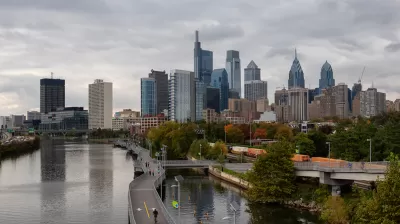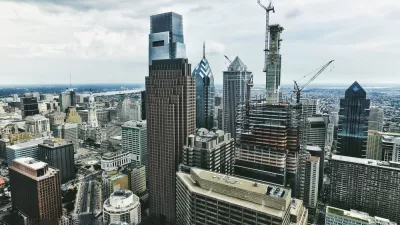City leaders hope a new affordable housing law will increase the supply of affordable units in the city, but critics say the policy may lead to reduced construction and higher housing costs.

As Matthew Rothstein reports for Bisnow, "On Jan. 18, Mayor Jim Kenney signed into law Philadelphia City Council Bill No. 210633, which requires any new residential buildings of 20 units or more to set aside 20% of those units for affordable housing." The new mandatory inclusionary zoning law only applies to portions of two council districts, prompting questions about unintended consequences like displacement and gentrification.
According to Rothstein's article, "The Olde Kensington overlay created by the law overlaps with HACE’s service area, where a heavily Latino population is feeling the pressure of an ongoing wave of development bringing higher-income households to the area." Rothstein cites critics of the law who say that "Philadelphia housing doesn’t achieve the market-rate rents and home prices necessary to keep development going in the affected areas."
In an article in the Fairfield Sun Times, M. Nolan Gray argues that "Between high construction and land costs – in addition to the new mandate that developers give up a fifth of all the units they produce – it’s likely that few developments, if any, will prove viable." Gray points to examples from other cities: "Since adopting a similarly aggressive ordinance in 2016, Portland has seen new multifamily permit applications plummet." According to Gray, "Indeed, to the extent that mandatory inclusionary-zoning programs act as a major new tax on housing development, they have been found to drive up housing costs."
Gray provides a series of recommendations that include "allowing more housing construction in high-opportunity neighborhoods with ample access to jobs and transit" while also finding more effective uses for existing assets like city-owned vacant lots. "To avoid the fate of other high-cost cities along the northeast corridor, Philadelphia must keep its current housing boom alive, while being smart about preventing displacement and adding new affordable housing."
FULL STORY: Philly's First Mandatory Inclusionary Zoning Law Is Official, And It Takes Effect In 6 Months

Trump Administration Could Effectively End Housing Voucher Program
Federal officials are eyeing major cuts to the Section 8 program that helps millions of low-income households pay rent.

Planetizen Federal Action Tracker
A weekly monitor of how Trump’s orders and actions are impacting planners and planning in America.

Ken Jennings Launches Transit Web Series
The Jeopardy champ wants you to ride public transit.

USDOT Waters Down Self-Driving Car Regulations
The agency is reducing reporting requirements for autonomous vehicles and cars with self-driving features, prompting concern among safety advocates who say transparency is essential to the safe deployment of AV technology.

‘Minnesota Nice’ Isn’t so Nice When You Can’t Find a Place to Live
The Economic Development and Housing Challenge Program can help address the scourge of homelessness among Indigenous people.

NYC Open Streets Organizers Call for City Support
The number of open streets projects has dropped year after year as volunteer groups struggle to fund and staff them.
Urban Design for Planners 1: Software Tools
This six-course series explores essential urban design concepts using open source software and equips planners with the tools they need to participate fully in the urban design process.
Planning for Universal Design
Learn the tools for implementing Universal Design in planning regulations.
Heyer Gruel & Associates PA
Ada County Highway District
Institute for Housing and Urban Development Studies (IHS)
City of Grandview
Harvard GSD Executive Education
Toledo-Lucas County Plan Commissions
Salt Lake City
NYU Wagner Graduate School of Public Service





























